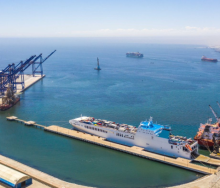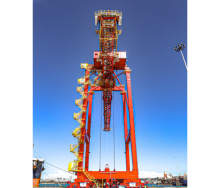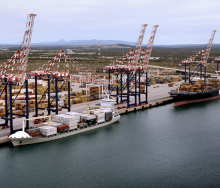The International Transport Workers’ Federation (ITF) has supported a move by 120 East African cross-border truck drivers to join a Ugandan trade union.
The ITF said in a statement this week that the 120 truck drivers had joined the Amalgamated Transport and General Workers’ Union of Uganda (ATGWU), raising its membership to almost 650 workers.
“These drivers are showing real leadership, building collective strength across borders,” said ITF general secretary Stephen Cotton.
“By joining ATGWU these workers are securing the full backing of both the union and the global union movement to confront informal employment, long hours, low pay, complications at border crossings, violence and harassment at work, and inadequate rest facilities. Their decision to stand together is a powerful reminder of the impact workers can have when they organise,” he said.
ITF added that the 120 members of the Namanve Park Drivers Association had become the fourth informal drivers’ association to affiliate with ATGWU.
The union is part of a multi-year ITF project with East African road transport, warehousing and dockers’ unions, supported by Friedrich-Ebert-Stiftung, to build trade union power in key product supply chains.
A central focus of the project is organising cross-border truck drivers who work along the northern corridor, which runs from Kenya through Uganda to South Sudan and the Democratic Republic of Congo.
In November 2024, ITF and East African unions met to map these supply chains and plan their organising strategies.
“Bringing drivers together under our union’s umbrella is how we can build worker power along the corridor,” said ATGWU general secretary, Stephen Abima.
“These drivers transport goods to destinations across the Northern Corridor – including warehouses for multinational corporations like Africa Global Logistics, CEVA Logistics, DHL, Maersk and Sinotrans – and their collective voice will be pivotal in securing safer, fairer conditions for everyone on the roads.”
The ITF said the union and drivers were calling on the industry and government leaders to implement the International Labour Organization (ILO) “Guidelines on the promotion of decent work and road safety in the transport sector”, which calls on governments and transport companies to take joint responsibility for fair and safe working conditions in the sector.













